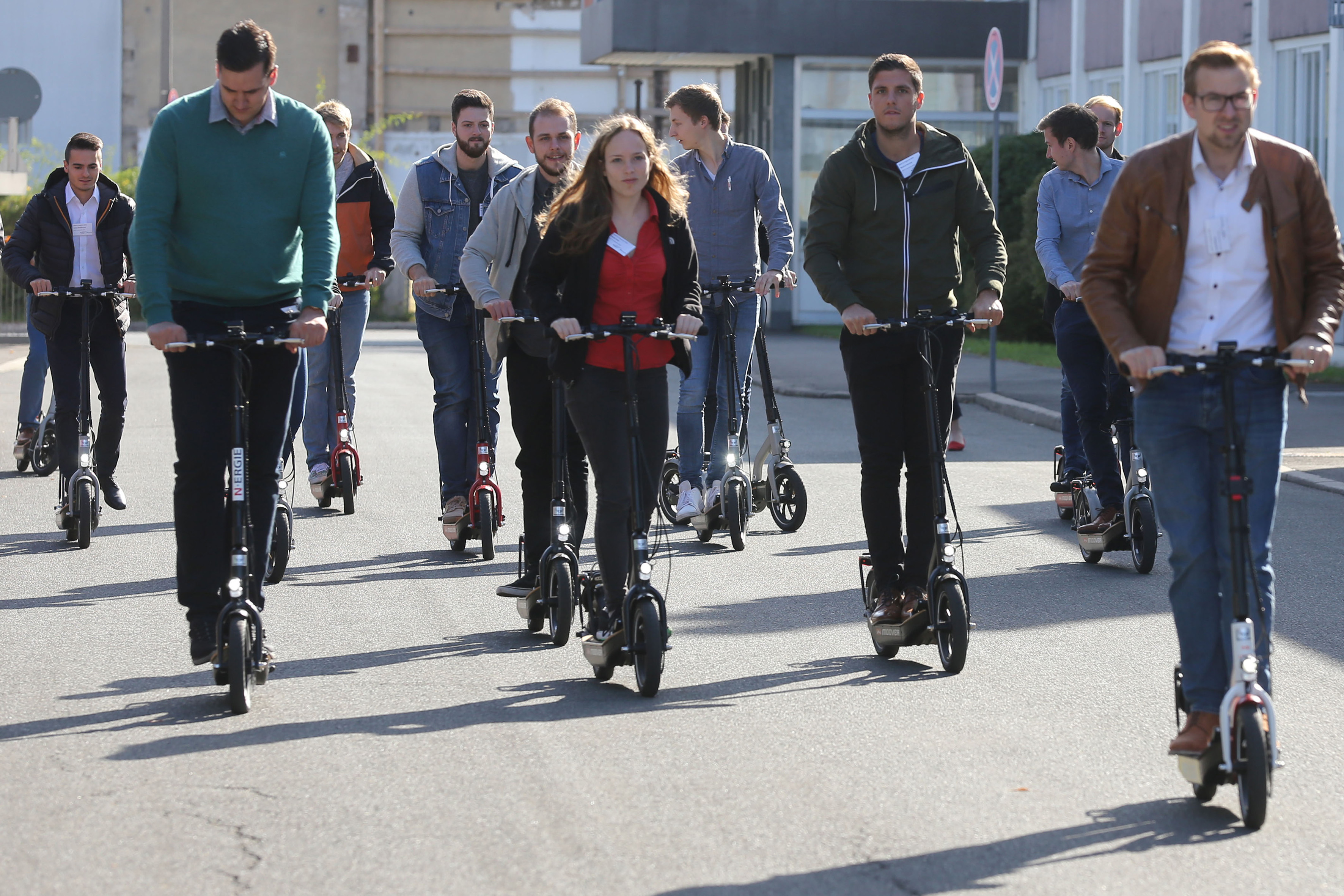DRIVE-E 2019: the future of electric driving

The future belongs to alternative drive technologies: in September, the DRIVE-E junior program provided students with an insight into the many facets of electric mobility for the tenth time. In addition, four young scientists were awarded one of this year’s DRIVE-E study prizes by the German Federal Ministry of Education and Research (BMBF) and the Fraunhofer-Gesellschaft.
First prize in the category of Projects and Bachelor Theses went to Ronja Haas from the Justus Liebig University of Giessen. Her bachelor thesis dealt with the issue of dendrite growth and investigated the chemical processes within battery cells. In the category of Master's and Higher Degree Theses, first place was awarded to Julian Jakob Alexander Kreissl, also from the University of Giessen. He developed a promising approach to combat the growth of dendrites in metal/oxygen batteries.
DRIVE-E was initiated in 2009 by the BMBF and the Fraunhofer-Gesellschaft. Since then, more than 500 young talents have taken part in the junior program. The DRIVE-E host in 2019 was Fraunhofer IISB in Erlangen; the university partner was Friedrich-Alexander-Universität Erlangen-Nürnberg (FAU). As part of a driving event on the Saturday, the participants got their own chance to experience the exhilaration of being at the wheel of different electric vehicles.
More information: www.drive-e.org
Last modified: